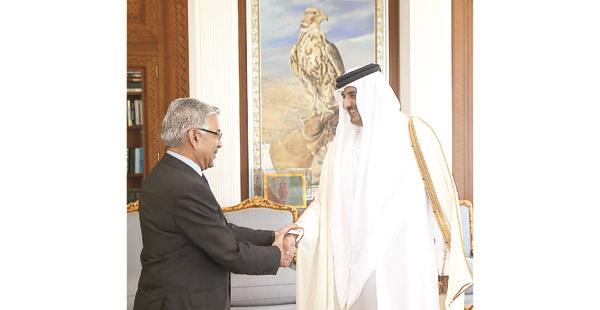
Qatar- Democracy key to defeating terror: Experts
DOHA: Spreading the culture of democracy is the way to defeat terrorist outfits in the Arab world, a session at the Doha Forum was told yesterday. The session titled “The Middle East — Towards more stability and prosperity” featured well-known regional and international personalities.
“Spreading democracy is the way to defeat terrorist organisations and end the Arab-Israeli conflict. Arab region has a chance for democracy, contrary to what is being claimed by some outsiders. Arab youth have the ability to practise democracy and 55 percent of the region’s population are aged under 18,” said Dr Saeb Erakat, Chief Palestinian Negotiator.
He called for reforming the education system in Arab countries.
The two-state solution and improving Arab-Arab relations are the core points for restoring the Palestinian rights, he added.
Ismail Ould Cheikh Ahmed, UN Secretary General’s special envoy to Yemen said that the conflict in Yemen has left about 7,000 people dead, 35,000 injured and three million people displaced or homeless in one year. The ceasefire implemented last April contributed to improving the humanitarian situation in Yemen as it enabled relief organisations to resume work and provide support to around 13 million people in different parts for the country, he said.
“The negotiations in Kuwait between the government and the Houthis have stumbled many times. The challenge in Yemen is big but not impossible to solve under the current peace dialogue,” said Ahmed.
“In Kuwait we are still discussing implementation of the UN resolution 2216. It cannot be implemented automatically but needs mechanism and details which are causing disagreement,” he added.
He said no Yemeni government will be formed without full implementation of the decision, including removal of Houthis from all the towns and handing over weapons. Then, it will enter the second phase which will include involvement of different Yemeni political spectrums. The issue of political prisoners from all sides will be resolved soon, he added.
Anas Al Abdah, President of the National Coalition for Syrian Revolutionary and Opposition Forces, said stability in the Middle East is linked with the current situation in Syria and the Syrian regime is not respecting its commitment to address the humanitarian situation in the country. It is not lifting the siege from towns, nor releasing prisoners and has been targeting civilians.
Nickolay Mladenov, UN Special Coordinator for the Middle East Peace Process, said peoples of the region will not be able to face future challenges without enjoying justice and dignity. “It is important to discuss the problems in Iraq, Libya, Syria and Palestine in a comprehensive manner under the UN umbrella. The two-state solution will die if it not implemented. International community must support this solution,” he added. Jan Kubis, Special Representative of the UN Secretary General for Iraq and Tobias Ellwood, Parliamentary Under Secretary of State at the Foreign and Commonwealth Office also spoke.
The Peninsula
if(window.innerWidth < 728){ googletag.display('div-gpt-ad-796530061225000279-1'); }



















Comments
No comment